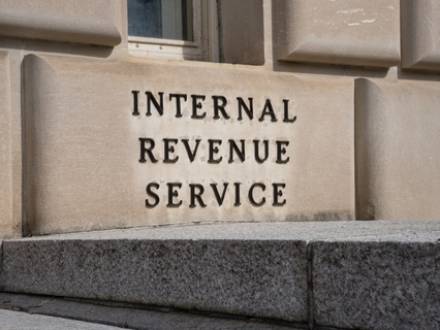Recent Blog Posts
IRS Offers Taxpayers More Options for Alternative Dispute Resolution
 When taxpayers encounter disputes with the IRS regarding tax debts, penalties, or other concerns, they may be unsure about their options. Fortunately, the IRS offers solutions for addressing these issues outside the standard legal or administrative processes, which can help taxpayers resolve concerns more quickly and efficiently. Recently, the IRS has begun to offer some expanded options for alternative dispute resolution (ADR) that may benefit businesses involved in tax appeals.
When taxpayers encounter disputes with the IRS regarding tax debts, penalties, or other concerns, they may be unsure about their options. Fortunately, the IRS offers solutions for addressing these issues outside the standard legal or administrative processes, which can help taxpayers resolve concerns more quickly and efficiently. Recently, the IRS has begun to offer some expanded options for alternative dispute resolution (ADR) that may benefit businesses involved in tax appeals.
Understanding the best approach to take to resolve tax disputes can be difficult, which is why legal representation is crucial in these situations. A California tax attorney with experience and understanding of taxation law representing clients in matters related to the IRS can provide guidance in these situations while working to minimize the taxes, penalties, and interest that taxpayers may be required to pay.
How Is Business Personal Property Taxed in California?
 There are a variety of taxes that apply to businesses. These include federal and state income taxes that apply to a business’s profits and losses. Businesses in California are also required to pay property taxes, which are usually assessed based on the value of real estate property where a business is located. However, business owners should know that property taxes also apply to other property owned by a business. This property is known as business personal property, and understanding what types of property must be reported to the State of California can help ensure that business owners are not surprised by a tax bill.
There are a variety of taxes that apply to businesses. These include federal and state income taxes that apply to a business’s profits and losses. Businesses in California are also required to pay property taxes, which are usually assessed based on the value of real estate property where a business is located. However, business owners should know that property taxes also apply to other property owned by a business. This property is known as business personal property, and understanding what types of property must be reported to the State of California can help ensure that business owners are not surprised by a tax bill.
Resolving concerns related to property taxes is not always easy, especially when there are questions about the valuation of property and the taxes that may apply. A California tax attorney with experience in property tax law and the tax issues affecting small businesses can help identify any concerns, ensure that property is assessed correctly, and work to resolve any issues while minimizing the property taxes and/or penalties that a business may be required to pay.
Can Domesticating a Foreign Corporation Provide Tax Benefits?
 The requirements that apply to U.S. taxpayers who own foreign assets can be complex. Steps may need to be taken to ensure that offshore income and assets are reported correctly to the IRS. By reporting information correctly and paying all required taxes, taxpayers can avoid penalties or other issues that could result in financial losses. In some cases, taxpayers may benefit by converting a foreign corporation into a domestic corporation. This may be done by completing an "F reorganization," which is also known as a "domestication transaction."
The requirements that apply to U.S. taxpayers who own foreign assets can be complex. Steps may need to be taken to ensure that offshore income and assets are reported correctly to the IRS. By reporting information correctly and paying all required taxes, taxpayers can avoid penalties or other issues that could result in financial losses. In some cases, taxpayers may benefit by converting a foreign corporation into a domestic corporation. This may be done by completing an "F reorganization," which is also known as a "domestication transaction."
Understanding the procedures that must be followed and the requirements that must be met when completing an F reorganization can be difficult for those who are not well-versed in the tax laws of the United States. A California tax attorney with experience handling tax issues and an understanding of business formation can provide assistance during this process, ensuring that the correct steps are taken to realize the available tax benefits.
How Can New Construction Affect California Property Taxes?
 There are many reasons why homeowners or other property owners may want to make improvements to their properties. However, when doing so, they need to understand the effects that these improvements may have on their property taxes. Under the California Revenue and Taxation Code, certain improvements or additions to a home or commercial property are classified as new construction, which can trigger a reassessment of the property’s value.
There are many reasons why homeowners or other property owners may want to make improvements to their properties. However, when doing so, they need to understand the effects that these improvements may have on their property taxes. Under the California Revenue and Taxation Code, certain improvements or additions to a home or commercial property are classified as new construction, which can trigger a reassessment of the property’s value.
In the San Francisco Bay Area, where property values are high and construction projects are common, understanding how new construction affects property taxes is essential for property owners. A California tax attorney with experience in property tax law can provide invaluable guidance to ensure that these issues will be correctly addressed.
What Is Considered New Construction Under California Law?
California’s Proposition 13 governs how property taxes are assessed, generally limiting annual increases in assessed value to 2%. However, when new construction occurs, the value of the property may be reassessed at its current market value. Under the California Revenue and Taxation Code, "new construction" includes:
How to Prepare for a Tax Audit Involving Cryptocurrency
 As cryptocurrency continues to grow in popularity, the Internal Revenue Service (IRS) has increased its scrutiny of digital asset transactions. Because of this, taxpayers are more likely to face audits focusing on transactions involving virtual currencies. For those who have received notices from the IRS related to cryptocurrency or who are concerned that they could face an audit, preparing thoroughly can help reduce the potential financial impact. An experienced San Jose, CA tax attorney can provide invaluable assistance throughout the audit process, helping taxpayers comply with federal tax laws while avoiding or minimizing potential penalties.
As cryptocurrency continues to grow in popularity, the Internal Revenue Service (IRS) has increased its scrutiny of digital asset transactions. Because of this, taxpayers are more likely to face audits focusing on transactions involving virtual currencies. For those who have received notices from the IRS related to cryptocurrency or who are concerned that they could face an audit, preparing thoroughly can help reduce the potential financial impact. An experienced San Jose, CA tax attorney can provide invaluable assistance throughout the audit process, helping taxpayers comply with federal tax laws while avoiding or minimizing potential penalties.
Why the IRS May Audit Cryptocurrency Transactions
Because virtual currency transactions are decentralized, and the people or entities involved often have some level of anonymity, they may not be reported to the IRS. To address this issue, the IRS has implemented several enforcement efforts to ensure that taxpayers properly report income, gains, and other taxable events related to digital assets. Common reasons the IRS might initiate an audit include:
Changes to IRS Voluntary Disclosure Practice: What You Need to Know
 There are a variety of situations where taxpayers may need to address non-compliance with their requirements to report information to the IRS or pay taxes owed. In many cases, these situations can lead to investigations or tax audits, and significant penalties may apply. Taxpayers may take steps to address these concerns, avoid criminal prosecution, and minimize penalties by voluntarily disclosing these issues to the IRS and taking steps to pay any taxes they owe.
There are a variety of situations where taxpayers may need to address non-compliance with their requirements to report information to the IRS or pay taxes owed. In many cases, these situations can lead to investigations or tax audits, and significant penalties may apply. Taxpayers may take steps to address these concerns, avoid criminal prosecution, and minimize penalties by voluntarily disclosing these issues to the IRS and taking steps to pay any taxes they owe.
In some cases, the best method of disclosing and addressing tax issues is through the IRS’s Voluntary Disclosure Practice (VDP). This program allows taxpayers to notify the IRS of non-compliance, provide relevant information, and make arrangements for payment. However, the IRS has made some changes to the VDP in 2024, and taxpayers will need to be aware of how they may be affected. Working with a California attorney during the voluntary disclosure process is crucial, since it will ensure that a taxpayer understands the requirements that will apply and the effects that disclosures may have on their rights and their ability to address tax issues while minimizing penalties.
Court Blocks Corporate Transparency Act, Affecting Reporting Requirements
 In an effort to combat illegal activities like money laundering, the United States Congress passed the Corporate Transparency Act (CTA). This law required companies to submit information about their owners to the Financial Crimes Enforcement Network (FinCEN). However, a recent court decision has temporarily halted this requirement. As the case continues to play out in federal court, business owners and stakeholders may be unsure about their reporting requirements or how they should proceed.
In an effort to combat illegal activities like money laundering, the United States Congress passed the Corporate Transparency Act (CTA). This law required companies to submit information about their owners to the Financial Crimes Enforcement Network (FinCEN). However, a recent court decision has temporarily halted this requirement. As the case continues to play out in federal court, business owners and stakeholders may be unsure about their reporting requirements or how they should proceed.
Because of the complex reporting requirements under the CTA and other laws and regulations, business owners, stakeholders, or other affected parties may need to consult with a San Jose, CA tax attorney who has a strong understanding of these legal issues. Small businesses and large corporations can work with legal counsel to take the appropriate steps and avoid potential penalties that may apply if they fail to address these concerns correctly.
Changes to Contribution Limits for 401(k)s and IRAs in 2025
 Planning for retirement can be crucial for nearly everyone. Many people use employer-sponsored 401(k) accounts, or they may contribute to Individual Retirement Accounts (IRAs). There are certain limits on the amounts that can be contributed to retirement accounts each year, but these limits are regularly updated. Some taxpayers may also be able to "catch up" on contributions as they get closer to retirement, ensuring that they will have enough money saved to meet their needs in the future.
Planning for retirement can be crucial for nearly everyone. Many people use employer-sponsored 401(k) accounts, or they may contribute to Individual Retirement Accounts (IRAs). There are certain limits on the amounts that can be contributed to retirement accounts each year, but these limits are regularly updated. Some taxpayers may also be able to "catch up" on contributions as they get closer to retirement, ensuring that they will have enough money saved to meet their needs in the future.
The Internal Revenue Service (IRS) recently announced adjustments to the contribution limits for retirement accounts, and these changes will go into effect in 2025. Understanding these changes is essential for taxpayers who are aiming to maximize their retirement savings and the associated tax benefits. An experienced San Jose, CA attorney can help address legal issues related to retirement contributions, ensuring that taxpayers can take advantage of tax benefits and that employers understand the requirements they must meet when offering retirement benefits for employees.
IRS Ends Automatic Penalties for Late Filing of Form 3520 or 3520-A
 U.S. taxpayers who own foreign assets or receive assets from foreign sources face a variety of complex reporting requirements. Failure to file the correct forms with the IRS can result in substantial penalties. However, a recent policy change by the IRS may provide some relief for these taxpayers. The IRS will no longer impose automatic penalties for late filing of certain forms, and taxpayers may be able to avoid penalties by demonstrating that they had a reasonable cause for failing to file.
U.S. taxpayers who own foreign assets or receive assets from foreign sources face a variety of complex reporting requirements. Failure to file the correct forms with the IRS can result in substantial penalties. However, a recent policy change by the IRS may provide some relief for these taxpayers. The IRS will no longer impose automatic penalties for late filing of certain forms, and taxpayers may be able to avoid penalties by demonstrating that they had a reasonable cause for failing to file.
The procedures that must be followed when reporting foreign assets and income can be complicated, and taxpayers need to understand the steps they can take to avoid penalties and minimize their tax burdens. Assistance from a skilled and experienced San Jose, CA attorney can be crucial when dealing with tax law concerns.
IRS May Conduct More Tax Audits for Pass-Through Entities
 The IRS has announced increased efforts to audit certain tax arrangements associated with pass-through entities, including partnerships, LLCs, S corporations, and trusts. These entities are often used by high-income earners and larger companies, and while they offer tax advantages, they can also present complex tax reporting challenges. As the IRS intensifies its oversight, pass-through entities may experience tax audits. By working with a knowledgeable tax attorney, business owners can navigate these audits, resolve concerns raised by the IRS, and mitigate any penalties that may apply.
The IRS has announced increased efforts to audit certain tax arrangements associated with pass-through entities, including partnerships, LLCs, S corporations, and trusts. These entities are often used by high-income earners and larger companies, and while they offer tax advantages, they can also present complex tax reporting challenges. As the IRS intensifies its oversight, pass-through entities may experience tax audits. By working with a knowledgeable tax attorney, business owners can navigate these audits, resolve concerns raised by the IRS, and mitigate any penalties that may apply.









